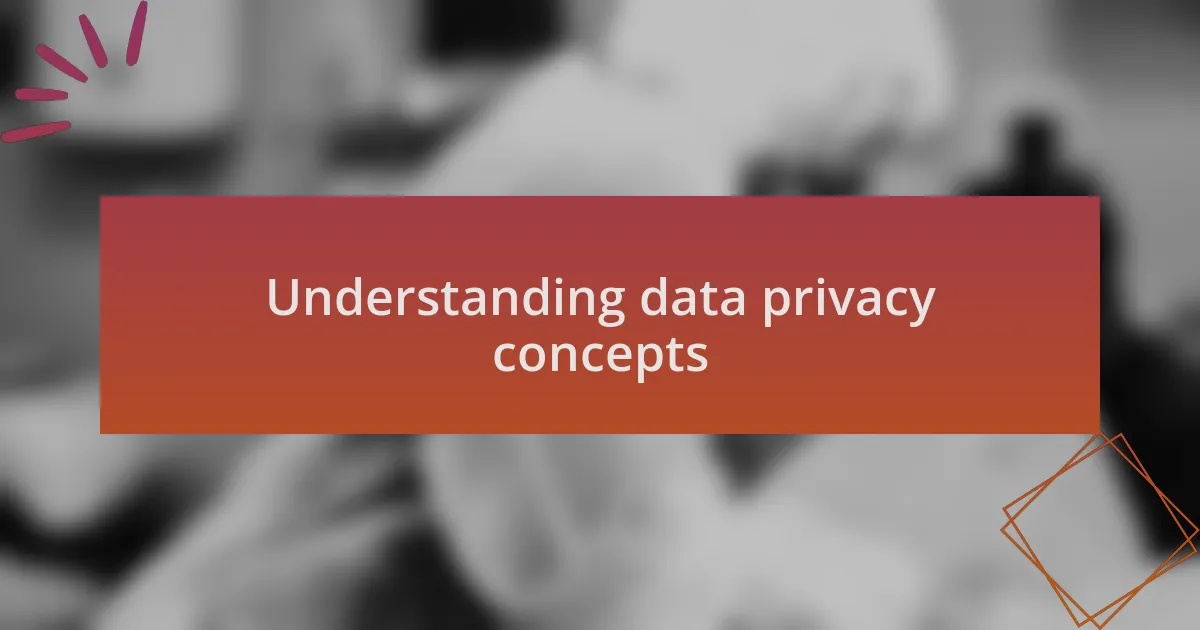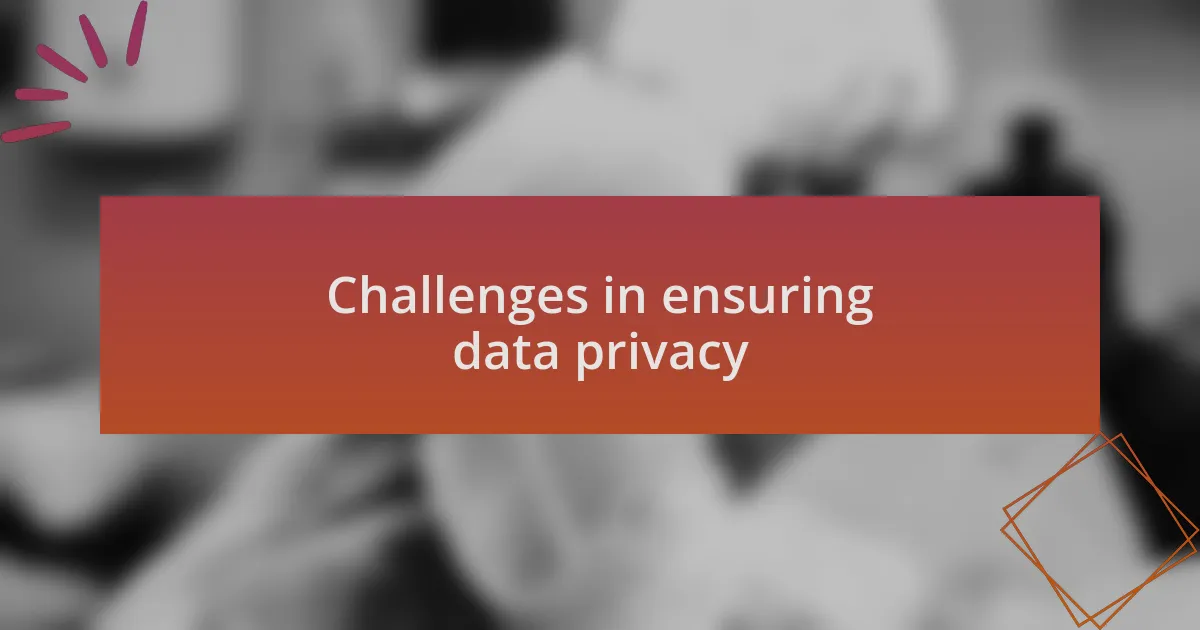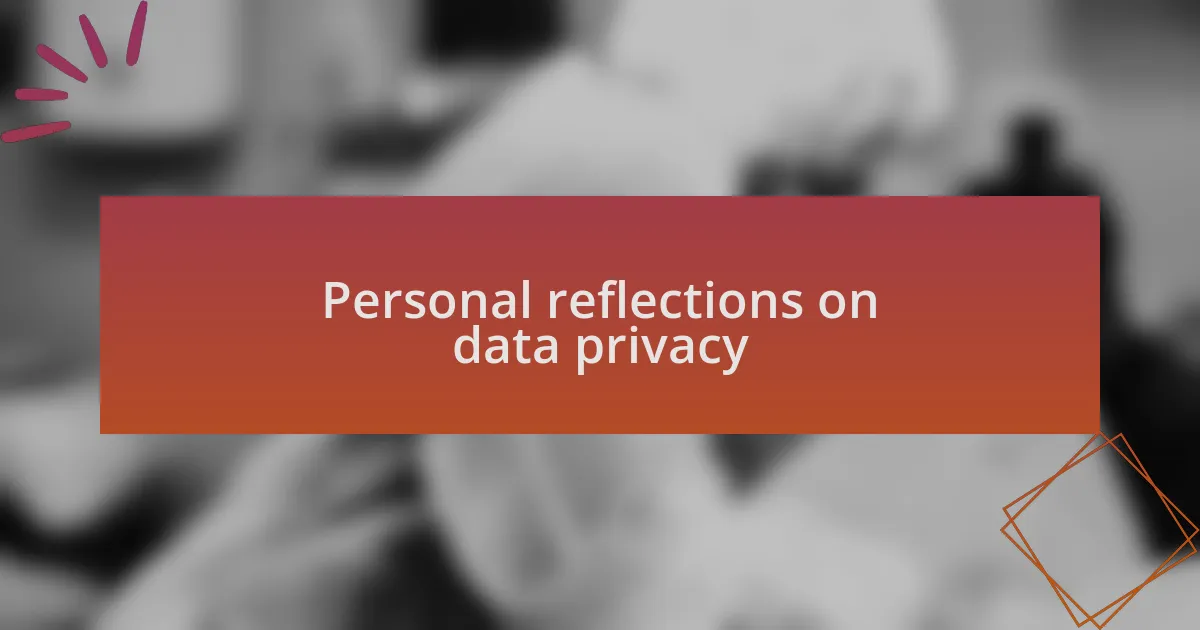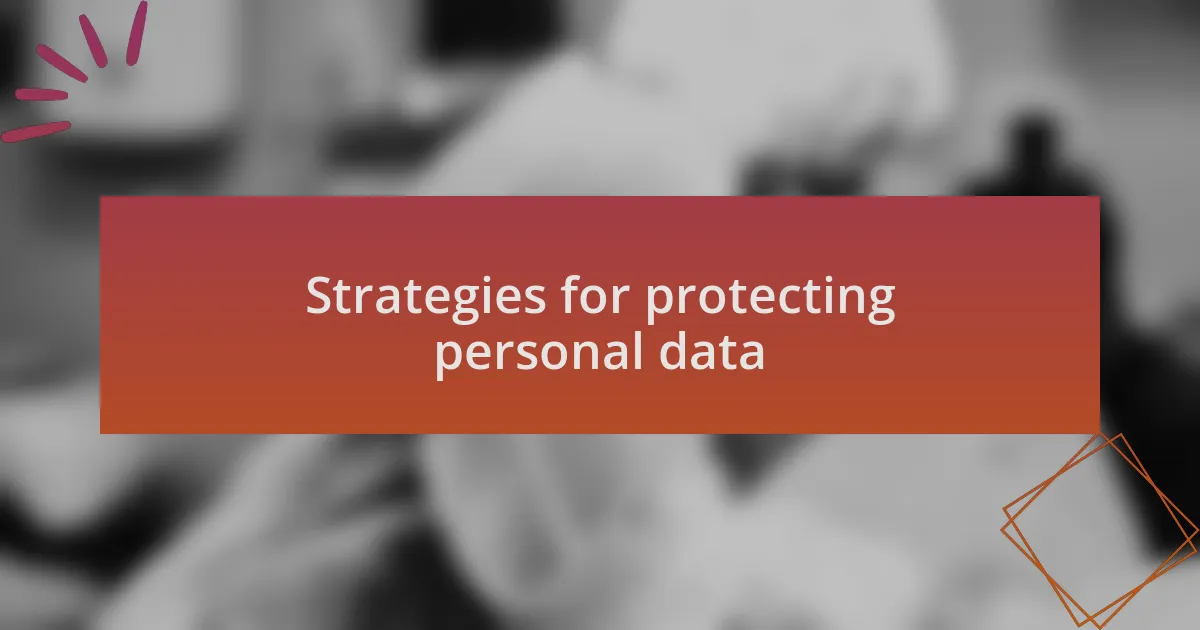Key takeaways:
- Data privacy involves understanding the difference between personal data and sensitive personal data, especially in contexts like surgical research.
- Anonymization does not guarantee safety; there are risks of re-identification with minimal data points.
- There is a crucial balance between innovation in research and the protection of personal data, requiring careful assessment of new technologies.
- Implementing strong data encryption and regular access control reviews are essential strategies to enhance data privacy protections.

Understanding data privacy concepts
Data privacy is more than just a buzzword; it’s about protecting sensitive information from unauthorized access. I remember feeling uneasy when I first learned how much of my personal data is shared online. It made me wonder, what safeguards are truly in place to protect our information in sensitive fields like surgical research?
One fundamental concept to grasp is the distinction between personal data and sensitive personal data. While personal data might include your name or email address, sensitive data encompasses health information, which is particularly significant in surgical contexts. I often find myself reflecting on how aware we are of the information we share and who it ultimately benefits. Shouldn’t we be more cautious about revealing details that could significantly impact our privacy and personal lives?
Moreover, data privacy regulations, such as GDPR in Europe, aim to enforce stricter protocols on how personal information is collected, processed, and stored. Observing the evolution of these regulations, I can’t help but feel a sense of optimism. However, are these laws enough to keep up with rapid technological advancements? The challenges of data protection in an ever-changing digital landscape are vast, and each conversation about it brings us closer to understanding the critical importance of maintaining our privacy.

Challenges in ensuring data privacy
Ensuring data privacy in surgical research faces numerous challenges that can complicate adherence to regulatory standards. For instance, I recall a time when a colleague discovered that an intricate software system we were using was inadvertently sharing anonymized health data without our knowledge. This revelation was alarming; it made me question just how robust our safeguards truly were. Could we really trust these technologies, when they could potentially expose sensitive information even with the best intentions?
Another hurdle is the misconception that anonymization guarantees privacy. I’ve shared countless discussions in my professional circle about the limits of anonymizing techniques. It’s easy to think that removing names or identifiers is enough, but in many cases, re-identification is possible with just a few data points. This realization often leaves me pondering: Are we doing enough to protect individuals whose data we handle, or are we being naive in assuming safety where none exists?
Lastly, the balancing act between innovation and privacy remains a paradoxical challenge. I often find myself torn between the excitement for cutting-edge research and the inherent risks it brings to personal data. Isn’t it crucial to remember that with every leap in technology, the vulnerabilities in data privacy can multiply? Each new method developed should be met with an equally meticulous assessment of how it affects the confidentiality of sensitive information.

Personal reflections on data privacy
Navigating the waters of data privacy has been a deeply personal journey for me. I still vividly remember a conference where a keynote speaker emphasized the importance of not just compliance but ethical responsibility in handling patient data. Their words struck a chord, compelling me to reflect on my own practices. Am I truly doing enough to safeguard the trust patients place in us, or am I merely crossing off checkboxes?
I’ve often found myself in discussions with fellow researchers about the emotional toll of potential data breaches. It’s not just about numbers and stats; it’s about real lives impacted by our decisions. One evening, after a particularly intense brainstorming session, I felt an overwhelming sense of responsibility wash over me. I realized that in our quest for breakthrough findings, we must never lose sight of the very human stories behind the data. How would I feel if it were my loved ones at risk?
During my early days in research, I naively believed that as long as we adhered to guidelines, we were adequately protected. However, a close colleague’s experience with a data leak challenged that notion. It was eye-opening and frightening. How could we ever guarantee complete security? Even the best safeguards can falter. I now understand that data privacy isn’t just a technical issue; it’s a commitment to ethical stewardship that resonates deeply within our community.

Strategies for protecting personal data
One effective strategy I’ve found is implementing strong data encryption methods. During a recent project, I noticed how encrypting sensitive patient information added a layer of security that eased my worries about data leaks. Have you ever considered how much vulnerability could be mitigated simply by ensuring that data is unreadable to unauthorized users?
Regularly reviewing access controls has also proven crucial in my practice. I recall a situation where I discovered a colleague had access to data they didn’t need for their work. It dawned on me that having strict protocols for who can view what not only protects data but also clarifies roles within the team. How much more secure would our research be if everyone understood their boundaries?
Engaging in continuous education about data privacy is another vital element. I’ve attended workshops that opened my eyes to emerging threats and best practices. It’s astonishing how quickly technology evolves, often outpacing our knowledge. Are we staying ahead of the curve? By actively seeking out knowledge, we can make informed decisions that safeguard personal data more effectively.